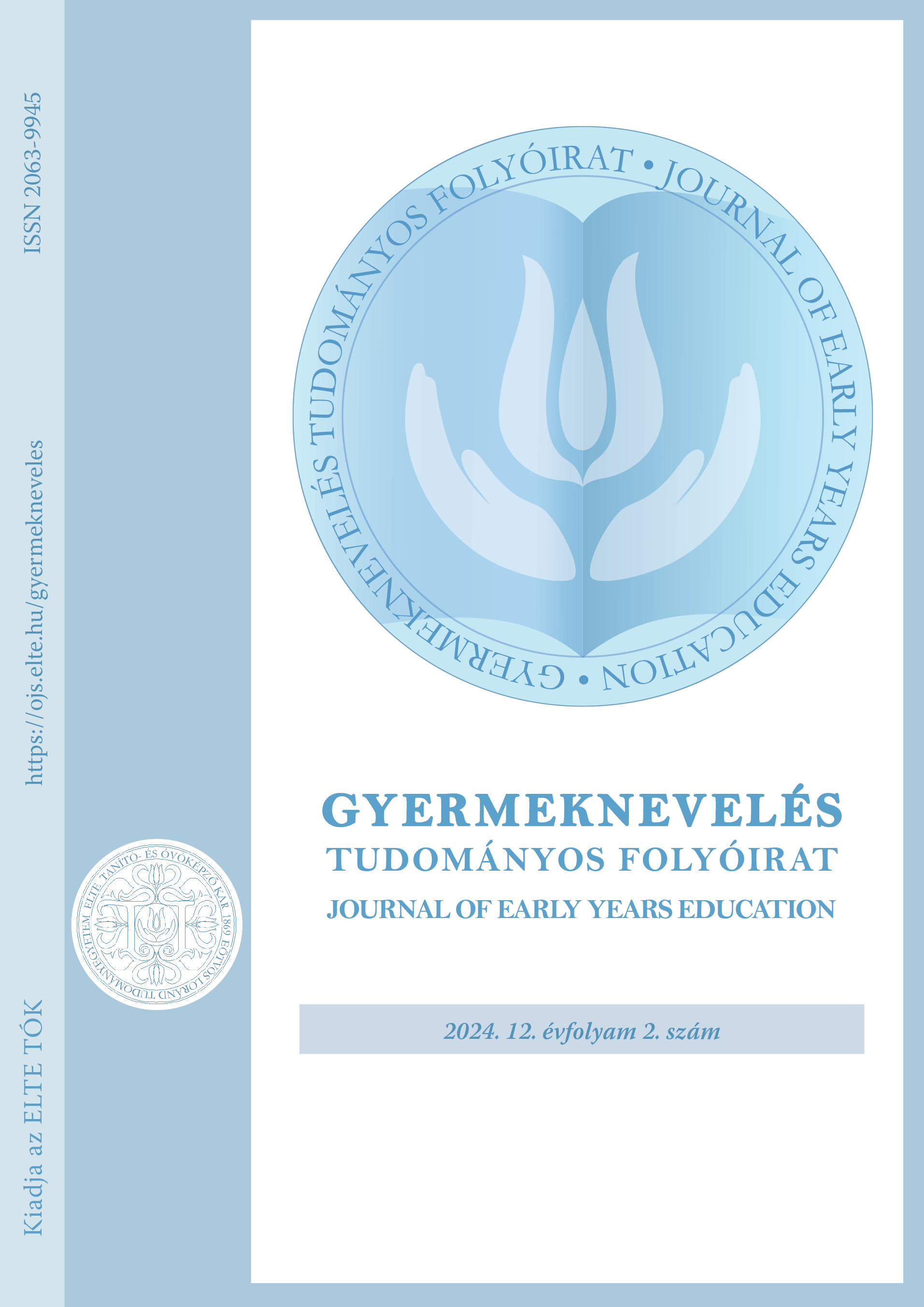Experience of the hundreds – the explosion of a task
DOI:
https://doi.org/10.31074/gyntf.2024.2.194.207Keywords:
discovery maths teaching, activity, number extensionAbstract
One of the important elements of the exploratory Hungarian primary maths teaching, which is associated with Tamás Varga and Zoltán Dienes, is that students solve the problem using activities, tools and at their own pace. This is the spirit in which the current content regulations for mathematics teaching and most of the textbooks for mathematics teaching have been developed. The focus of this paper is on a 3rd grade textbook mathematics task related to number extension, which can be solved not only in the textbook on paper, but also in an activity using careful teacher preparation and everyday tools. In this way, the textbook task becomes more vivid, less abstract, more understandable, more motivating and the process of solving it can raise new questions in the students. The task also includes possibilities for continuation, as the topic of number extension should be presented to the children not only in terms of the number of units, as in the selected task, but also in terms of the number of measures. Furthermore, the development of estimation skills and the use of approximate counting are also closely linked to the textbook task.
Downloads
References
Affandi, A. & Sukyadi, D. (2016). Project-based learning and problem-based learning for EFL students’ writing achievement at the tertiary level. Rangsit Journal of Educational Studies, 3(1), 23–40.
Churchill, D. (2003). Effective design principles for activity-based learning: The crucial role of ‘learning objects’ in science and engineering education. Paper Presented at the Ngee Ann Polytechnic, 2.
C. Neményi, E., Wéber, A., Konrád, Á. & Móricz, M. (2022a). Építsük fel! Matematika Gyűjtemény – 3. osztály. Oktatási Hivatal.
C. Neményi, E., Wéber, A., Konrád, Á. & Móricz, M. (2022b). Építsük fel! Munkáltató feladatlapok – 3. osztály. Oktatási Hivatal.
Frenzel, AC., Pekrun, R. & Goetz T. (2007). Perceived learning environment and students’ emotional experiences: A multilevel analysis of mathematics classrooms. Learning and Instruction, 17(5), 478–493. https://doi.org/10.1016/j.learninstruc.2007.09.001
Gosztonyi, K. (2015). Traditions et réformes de l’enseignement des mathématiques à l’époque des „mathématiques modernes”: Le cas de la Hongrie et de la France. [PhD]. University of Szeged; Université Paris-Diderot-Paris 7. https://hal.science/tel-01766902
Gosztonyi, K., Vancsó, Ö., Pintér, K., Kosztolányi, J. & Varga, E. (2018). Varga’s „Complex Mathematics Education” Reform: at the Crossroad of the New Math and Hungarian Mathematical Traditions. In Shimizu, Y. & Vithal, R. (Eds.), ICMI Study 24: School Mathematics Curriculum Reforms: Challenges, Changes and Opportunities. Conference Proceedings (pp. 133–140). Univertity of Tsukuba.
Halmos, M. & Varga, T. (1978). Change in mathematics education since the late 1950’s – ideas and realisation Hungary. Educational Studies in Mathematics, 9(2), 225–244. https://doi.org/10.1007/BF00221159
Matematika kerettanterv az általános iskola 1–4. évfolyama számára (2020). https://www.oktatas.hu/kozneveles/kerettantervek/2020_nat/kerettanterv_alt_isk_1_4_evf (2024.08.15.)
Panko, M., Kenley, R., Davies, K., Piggot-Irvine, E., Allen, B., Hede, J. & Harfield, T. (2005). Learning styles of those in the building and construction sector. Report for Building Research, New Zealand.
Pálfalvi, J. (2019). Varga Tamás élete. Typotex Kiadó.
Pintér, K. (2013). Matematika tantárgy-pedagógia. http://www.jgypk.hu/mentorhalo/
tananyag/Matematika_tantrgypedaggia/index.html (2024.08.15.)
Riley, N., Luban, D., Holmes, K., Gore, J. & Morgan, P. (2017). Movement-based mathematics: enjoyment and engagement without compromising learning through the easy minds program. EURASIA Journal of Mathematics Science and Technology Education, 13(6), 1653–1673. https://doi.org/10.12973/eurasia.2017.00690a
Sedova, K., Sedlacek, M., Svaricek, R., Majcik, M., Navratilova, J., Drexlerova, A., Kychler, J. & Salamounova, Z. (2019). Do those who talk more learn more? The relationship between student classroom talk and student achievement. Learning and Instruction 63, 101217. https://doi.org/10.1016/j.learninstruc.2019.101217
Downloads
Published
How to Cite
Issue
Section
License
Copyright (c) 2024 Author

This work is licensed under a Creative Commons Attribution-NonCommercial-ShareAlike 4.0 International License.

